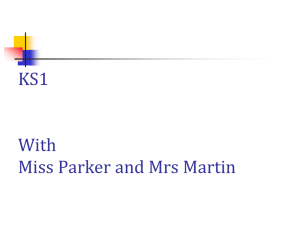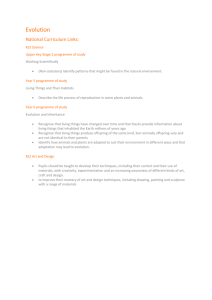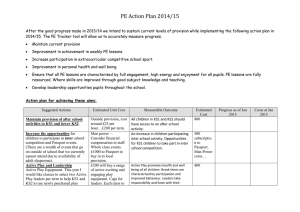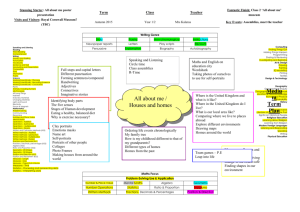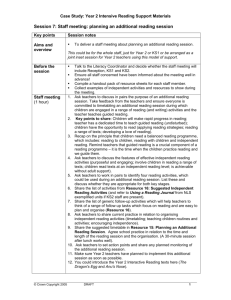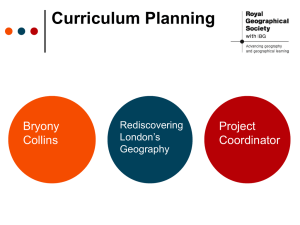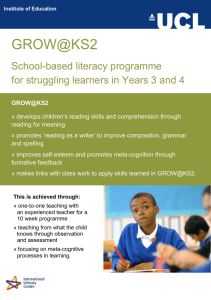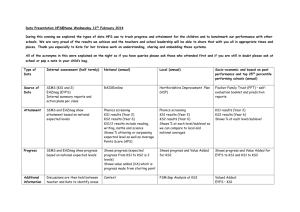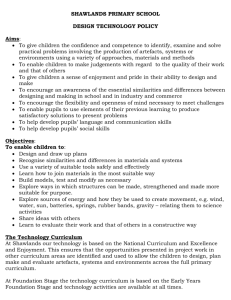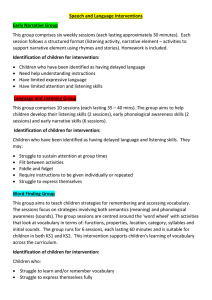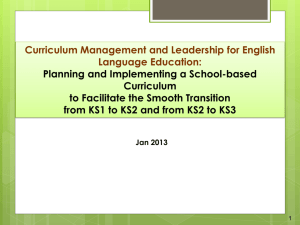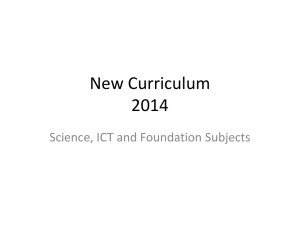MFL Policy 2010 - Sunderland Learning Hub
advertisement
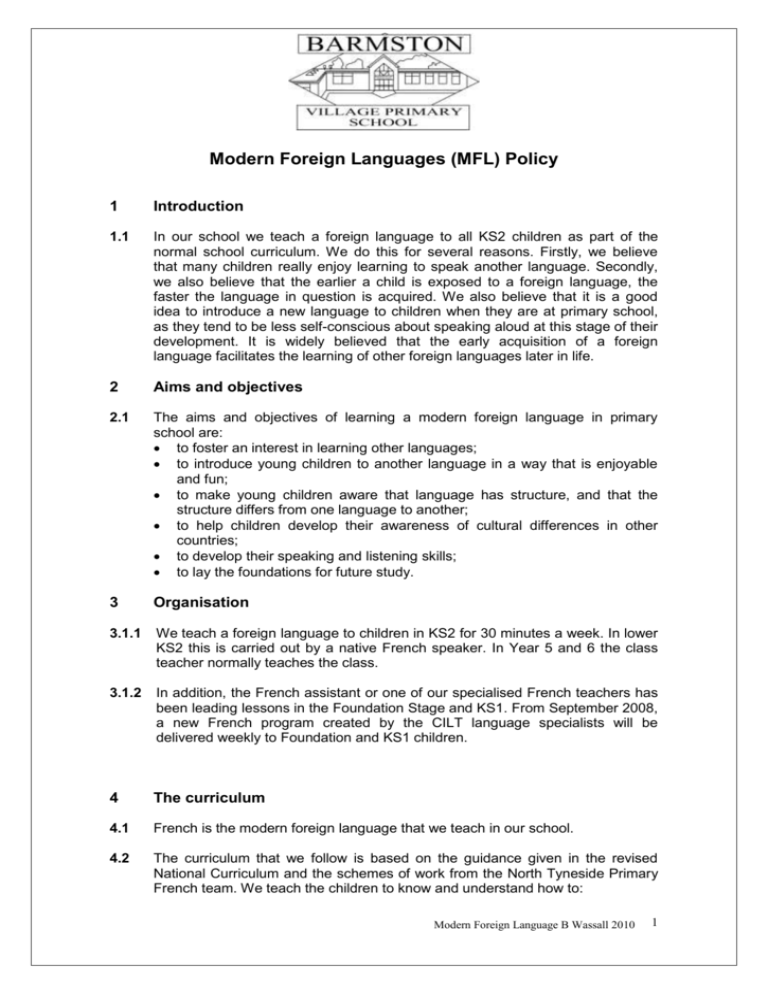
Modern Foreign Languages (MFL) Policy 1 Introduction 1.1 In our school we teach a foreign language to all KS2 children as part of the normal school curriculum. We do this for several reasons. Firstly, we believe that many children really enjoy learning to speak another language. Secondly, we also believe that the earlier a child is exposed to a foreign language, the faster the language in question is acquired. We also believe that it is a good idea to introduce a new language to children when they are at primary school, as they tend to be less self-conscious about speaking aloud at this stage of their development. It is widely believed that the early acquisition of a foreign language facilitates the learning of other foreign languages later in life. 2 Aims and objectives 2.1 The aims and objectives of learning a modern foreign language in primary school are: to foster an interest in learning other languages; to introduce young children to another language in a way that is enjoyable and fun; to make young children aware that language has structure, and that the structure differs from one language to another; to help children develop their awareness of cultural differences in other countries; to develop their speaking and listening skills; to lay the foundations for future study. 3 Organisation 3.1.1 We teach a foreign language to children in KS2 for 30 minutes a week. In lower KS2 this is carried out by a native French speaker. In Year 5 and 6 the class teacher normally teaches the class. 3.1.2 In addition, the French assistant or one of our specialised French teachers has been leading lessons in the Foundation Stage and KS1. From September 2008, a new French program created by the CILT language specialists will be delivered weekly to Foundation and KS1 children. 4 The curriculum 4.1 French is the modern foreign language that we teach in our school. 4.2 The curriculum that we follow is based on the guidance given in the revised National Curriculum and the schemes of work from the North Tyneside Primary French team. We teach the children to know and understand how to: Modern Foreign Language B Wassall 2010 1 ask and answer questions; use correct pronunciation and intonation; memorise words; interpret meaning; understand basic grammar; use dictionaries; work in pairs and groups, and communicate in the other language; look at life in another culture. 5 Teaching and learning style 5.1 We base the teaching on the guidance material in the North Tyneside Primary French scheme of work for modern foreign languages. We have adapted this to the context of our school and the abilities of our children. We are fortunate to have 2 teachers with experience delivering the subject in the target language and currently employ a French assistant one afternoon each week 5.2 We use a variety of techniques to encourage the children to have an active engagement in the modern foreign language: these include games, role-play and songs (particularly action songs). We often use puppets and soft toys to demonstrate the foreign language, and when possible also invite native speakers into the classroom, in order to expose the children to more than one voice in the foreign language. We frequently use mime to accompany new vocabulary in the foreign language, as this serves to demonstrate the foreign language without the need for translation. We emphasise the listening and speaking skills over the reading and writing skills. We also use a multi-sensory and kinaesthetic approach to teaching, i.e. we try to introduce a physical element into some of the games, as we believe that this serves to reinforce memory. We make the lessons as entertaining and enjoyable as possible, as we realise that this approach serves to develop a positive attitude in the children to the learning of modern foreign languages. We build children’s confidence through constant praise for any contribution they make in the foreign language, however tentative. 6 Assessment 6.1 We assess the children in order to ensure that they make good progress in this subject. This is done informally during the lessons in order to evaluate what the children have learned. Assessment is in four key areas: listening and responding; speaking; reading and responding; 7 Monitoring and review 7.1 We monitor teaching and learning in the same way as we do all the other courses that we teach in the school. The headteacher also reports to the governing body on the progress of children in French in the same way as in any other subject. 7.2 The co-ordinator liaises with the local secondary schools, so that they are aware of the modern foreign language experience of our children when they move to the next phase of their education. The school is also part of a small cluster group who work together to share resources and organise Modern Foreign Language events. B Wassall Jan 2010 Modern Foreign Language B Wassall 2010 2
